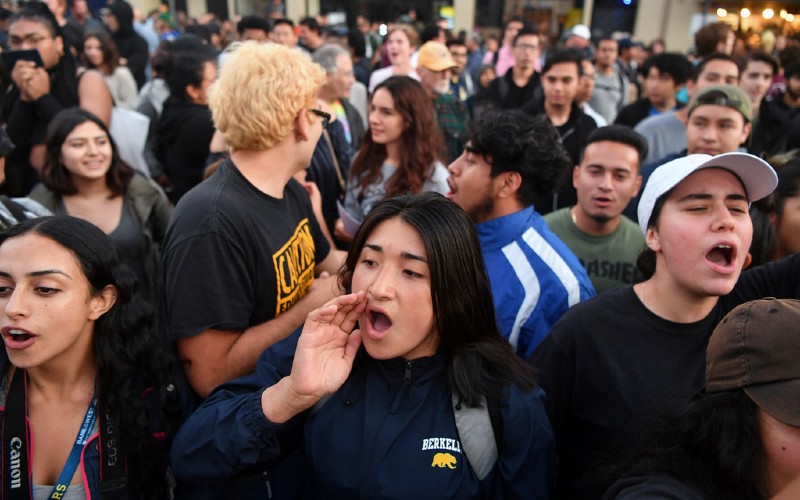With the recent release of the first worldwide study examining academic progress during the pandemic, the Program for International Student Assessment has given a grim appraisal of student scores.
Usually given every three years since 2000, the latest test was delayed a year because of the pandemic. It was administered in 2022 to a sample of 15-year-olds in 37 countries that are members of the Organisation for Economic Co-operation and Development (OECD), plus 44 other partner countries, and found that the average international math score fell by the equivalent of three-quarters of a year of learning. Reading scores fell by the equivalent of half a year.
Few nations made progress. In the U.S., which has historically lagged in math, the average math score fell by 13 points. Reading and science stayed mostly even, though a study last year showed that U.S. reading scores had dropped to 1992 levels.
David Randall, research director for the National Association of Scholars, does not think COVID is entirely to blame for the "unprecedented drop in performance."

"There are so many other things wrong with education that I wonder if COVID is disguising the long-term impact of some of the other wretched education policies which were already having a terrible effect on scores," he says.
His theory is supported by other OECD findings that show some countries lwere already trending downward before the pandemic. The OECD also suggests that the link between school closures and academic setbacks was "not so direct."
Noting the U.S. trend of dropping the 0-100 grading scale in the name of race-based "equity," Moms For Liberty co-founder Tina Descovich recently told AFN that too many students are being robbed of a solid education.
"If you have immensely stupid policies on how to teach people to read, this is also going to have an effect on the reading scores," Randall adds. "This may have just been hitting at the same time as COVID."
U.S. Education Secretary Miguel Cardona considers America's placement in the international assessment a relative success that he attributes to President Joe Biden's "investments" in education, including $190 billion in pandemic relief that Congress sent to schools.







